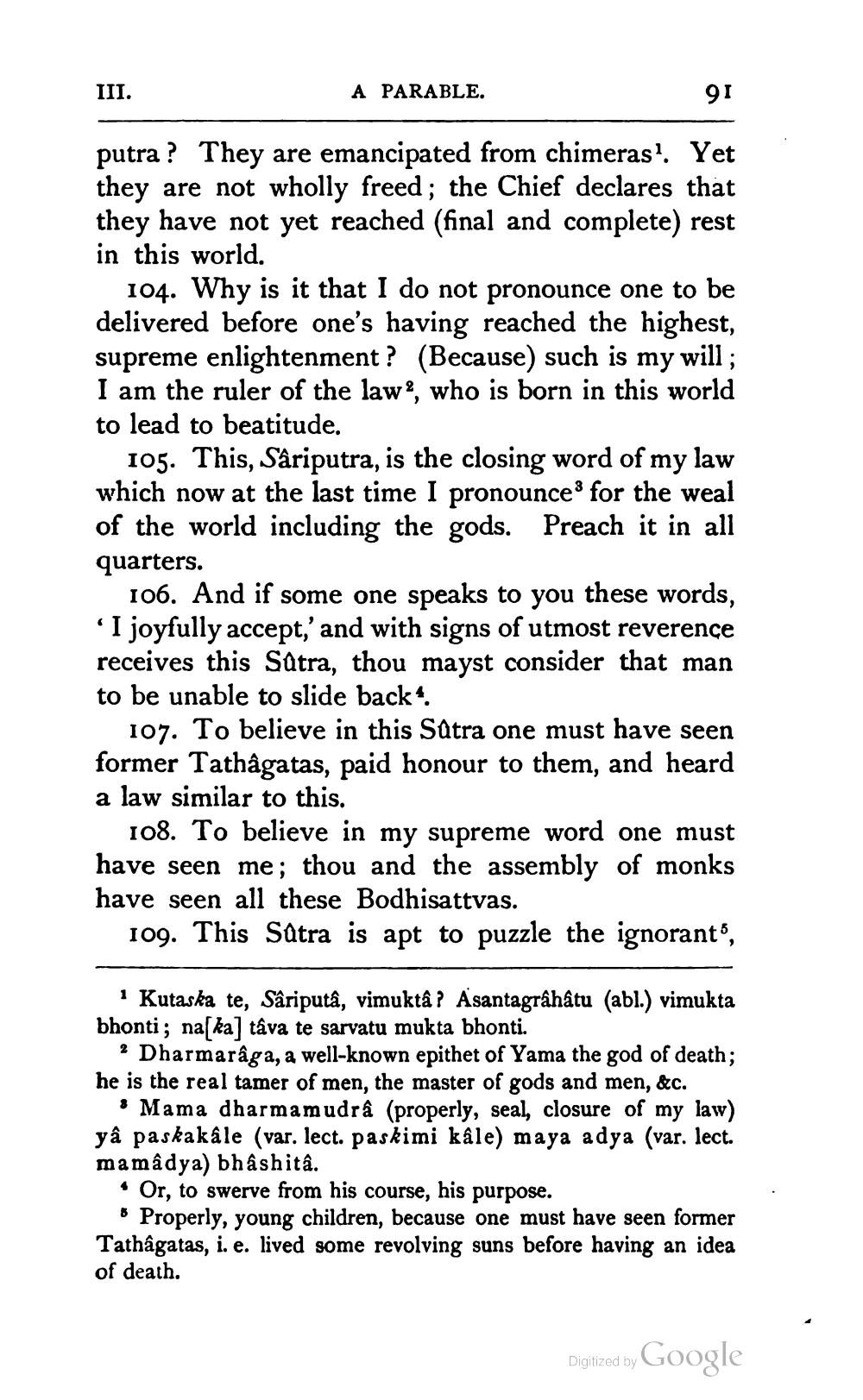________________
III.
A PARABLE.
91
putra ? They are emancipated from chimeras?. Yet they are not wholly freed; the Chief declares that they have not yet reached (final and complete) rest in this world.
104. Why is it that I do not pronounce one to be delivered before one's having reached the highest, supreme enlightenment ? (Because) such is my will ; I am the ruler of the law?, who is born in this world to lead to beatitude.
105. This, Sâriputra, is the closing word of my law which now at the last time I pronounce for the weal of the world including the gods. Preach it in all quarters.
106. And if some one speaks to you these words, 'I joyfully accept,' and with signs of utmost reverence receives this Satra, thou mayst consider that man to be unable to slide back.
107. To believe in this Satra one must have seen former Tathagatas, paid honour to them, and heard a law similar to this.
108. To believe in my supreme word one must have seen me; thou and the assembly of monks have seen all these Bodhisattvas.
109. This Satra is apt to puzzle the ignorant",
1 Kutaska te, Sâriputâ, vimukta ? Asantagrâhâtu (abl.) vimukta bhonti; na ka) tava te sarvatu mukta bhonti.
2 Dharmarâga, a well-known epithet of Yama the god of death; he is the real tamer of men, the master of gods and men, &c.
: Mama dharmamudrâ (properly, seal, closure of my law) yâ paskakale (var. lect. paskimi kâle) maya adya (var. lect. mamadya) bhâshita.
• Or, to swerve from his course, his purpose.
* Properly, young children, because one must have seen former Tathagatas, i.e. lived some revolving suns before having an idea of death.
Digitized by Google




